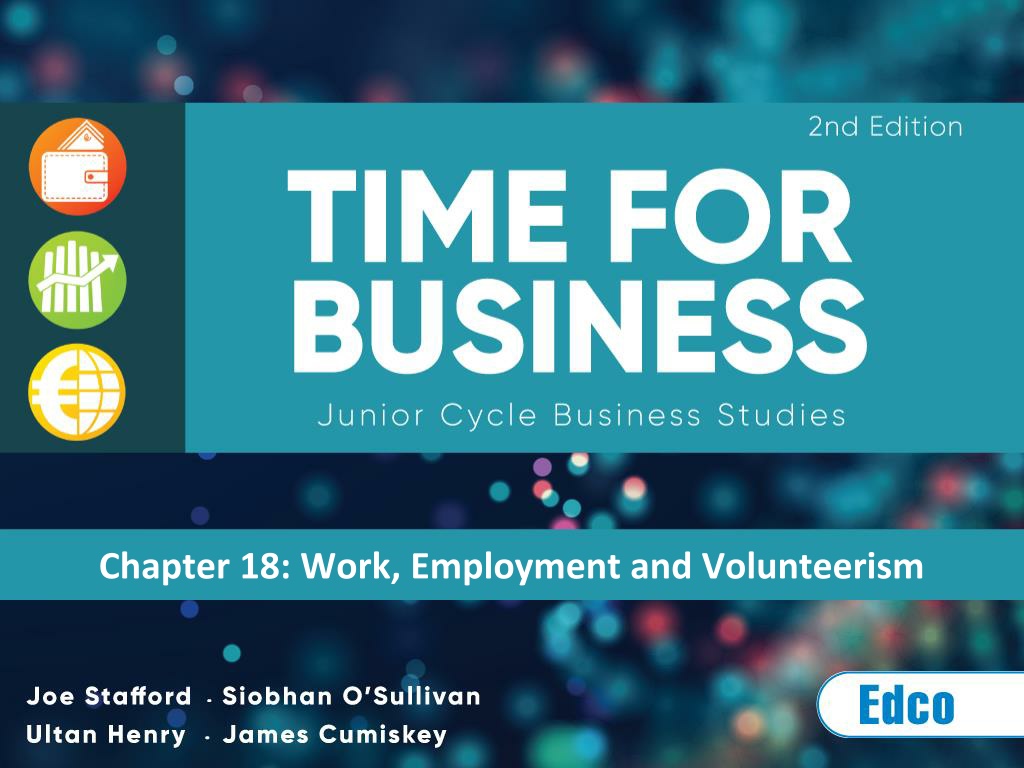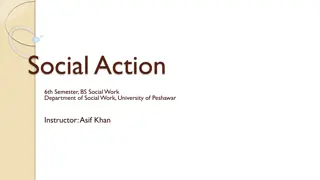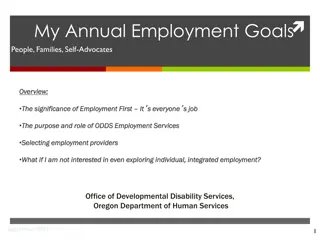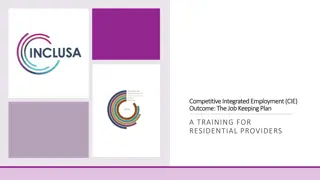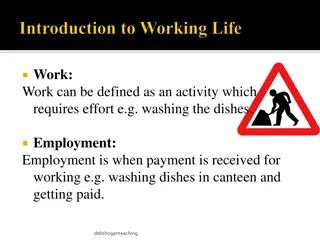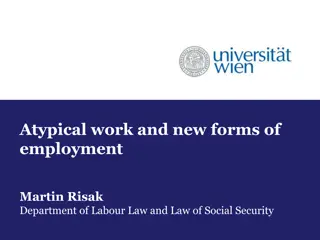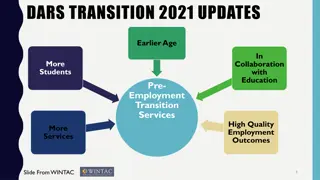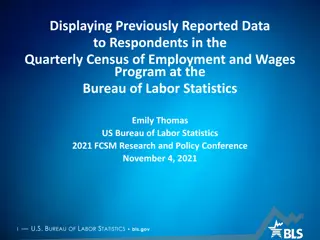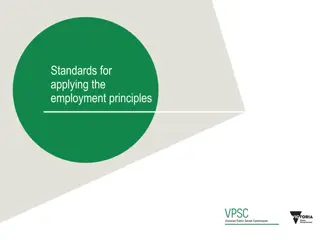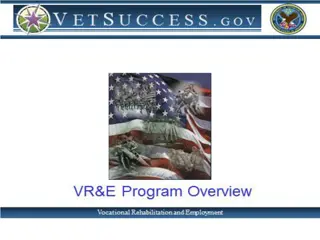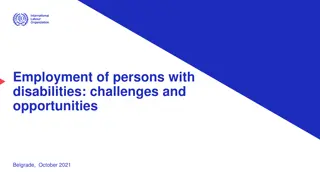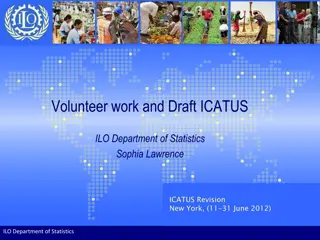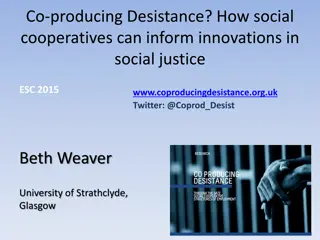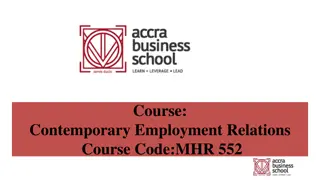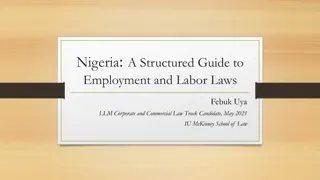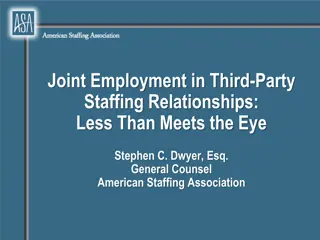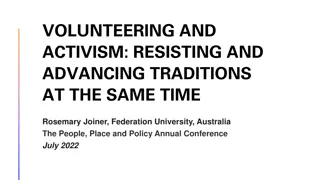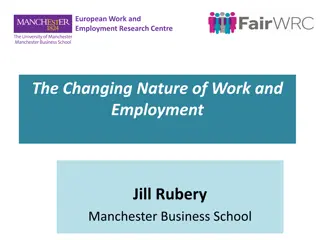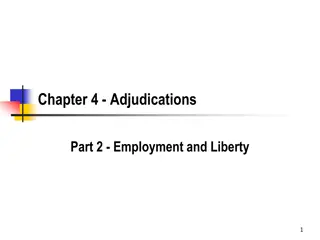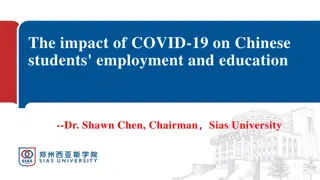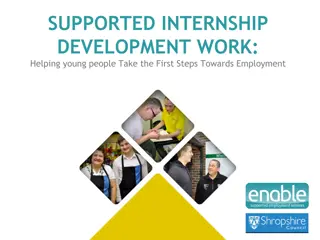Understanding Work, Employment, and Volunteerism
This chapter delves into the concepts of work, employment, and volunteerism, distinguishing between them and exploring their benefits. It covers various types of employment such as full-time, part-time, fixed-term, and self-employment. Additionally, it discusses the roles of employees and employers, along with reasons for volunteering and its rewards to both individuals and society. Through this chapter, readers will gain insights into different career paths relevant to their interests and subjects.
Download Presentation

Please find below an Image/Link to download the presentation.
The content on the website is provided AS IS for your information and personal use only. It may not be sold, licensed, or shared on other websites without obtaining consent from the author. Download presentation by click this link. If you encounter any issues during the download, it is possible that the publisher has removed the file from their server.
E N D
Presentation Transcript
Chapter 18 Learning intentions In this chapter you will learn to: Differentiate between work, employment and volunteering Explain the benefits and rewards of work and employment Discuss different types of employment Explain the term unemployment Outline the reasons why people volunteer Identify the benefits and rewards of volunteering to individuals, organisations and society Identify careers relevant to your interests and subjects. Textbook page reference: 209
Chapter 18 What is work? Work is any productive activity that requires effort. Textbook page reference: 210
Chapter 18 What is employment? Employment is work for which a person receives a payment. Textbook page reference: 210
Chapter 18 Employees Employees are people who work for employers in return for a payment. Textbook page reference: 210
Chapter 18 Employers An employer is someone who pays another person to work for them. Textbook page reference: 210
Chapter 18 Types of employment Full-time employment Part-time employment Fixed-term employment Casual employment Self-employment Job sharing Flexitime Teleworking Textbook page reference: 211
Chapter 18 Types of employment Full-time employees usually work 35 hours or more per week. They receive a salary or a full week s wages. Textbook page reference: 211
Chapter 18 Types of employment A part-time employee could work up to 30 hours a week. They are paid for the hours they work. Textbook page reference: 211
Chapter 18 Types of employment Many people are employed on a fixed-term basis. Their temporary employment finishes when the contract term ends. Textbook page reference: 211
Chapter 18 Types of employment Casual employees are on standby to do work as required without fixed hours. Textbook page reference: 211
Chapter 18 Types of employment People who are self-employed work for themselves. They may receive a wage and take their income from the profits they make in the business. Textbook page reference: 211
Chapter 18 Types of employment In job sharing, two employees together make up one working week in a particular role. They share the hours, workload and pay associated with the job. Textbook page reference: 211
Chapter 18 Types of employment Flexitime means that an employee can start and finish work at a time that suits them each day as long as they do the hours stated in their contract. Textbook page reference: 211
Chapter 18 Types of employment In teleworking, the employee works from home and carries out their duties as if they were working on the business premises. Textbook page reference: 211
Chapter 18 Rewards and benefits of work and employment Both work and employment help to achieve goals. Both help people to develop talents and skills. Both provide a sense of satisfaction and personal achievement. Work and employment are important for developing self-esteem. Both help us to meet new people and develop our social skills. Some types of employment provide an opportunity to travel. Employment provides income in the form of wages and salaries. Textbook page reference: 212
Chapter 18 Employment The labour force refers to all those people of working age who are willing and able to work for payment. Textbook page reference: 213
Chapter 18 Unemployment Members of the labour force who cannot find paid work are classified as unemployed. Textbook page reference: 213
Chapter 18 Voluntary work Volunteering is when people carry out some work or activity without payment for their time and effort. Textbook page reference: 213
Chapter 18 Why do people volunteer? They are passionate about a cause. They have personal experience of a cause, so they want to help others who are going through the same thing. They have received help themselves and now want to give back . They have time available and want to help their community. They have a skill that is needed and they want to put it to good use. They enjoy the work and get satisfaction from doing it. Textbook page reference: 214
Chapter 18 Benefits and rewards of volunteerism to the individual volunteer Volunteering is a chance to learn new skills and an opportunity to use existing skills. It can lead to paid employment in the future and provides an opportunity to get work experience. It shows initiative and personal enterprise. It offers a chance to make new friends and improve social and interpersonal skills. It enhances personal satisfaction and wellbeing. Textbook page reference: 214
Chapter 18 Benefits and rewards of volunteerism to the organisation Volunteers bring a range of new skills, expertise and ideas to the organisation. Organisations benefit from having passionate and highly motivated people involved. If volunteers are unpaid, more funds can be directed towards the organisation s main aims and activities. Volunteers may act as ambassadors for the organisation in the wider community. Textbook page reference: 215
Chapter 18 Benefits and rewards of volunteerism to society/the economy Communities tend to improve when members work together. Many voluntary organisations play an important role in reducing social isolation. The work of unpaid volunteers reduces the financial burden on the local and national government. Volunteering gets things done! Textbook page reference: 215
Chapter 18 What job will suit you? Find a job you love and you ll never work a day in your life. Textbook page reference: 215
Chapter 18 What job will suit you? Take an online quiz and see what jobs it recommends for you. Textbook page reference: 215
Chapter 18 Recap and review Can you: Differentiate between work, employment and volunteering? Explain the benefits and rewards of work and employment? Discuss different types of employment? Explain the term unemployment ? Outline the reasons why people volunteer? Identify the benefits and rewards of volunteering to individuals, organisations and society? Identify careers relevant to your interests and subjects?
Chapter 18 Credit slide Shutterstock
